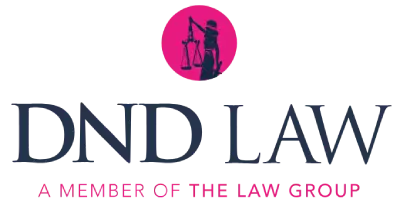Grant of Probate or Administration: What You Need to Know
Applying for a Grant of Probate or Grant of Administration in Northern Ireland is an essential process in administering a deceased person’s estate. The process is carried out by the executors or administrators of the estate to ensure that the estate is distributed according to the deceased’s wishes or the laws of intestacy.
Here’s a step-by-step guide on how to apply for a Grant of Probate or Grant of Administration in Northern Ireland:
Understand the Difference Between Grant of Probate and Grant of Administration
- Grant of Probate: This is issued when the deceased has left a valid will and you, as the executor named in the will, are applying for the authority to administer the estate.
- Grant of Administration: This is issued when the deceased has not left a valid will (intestate), or when no executor is named, and someone (usually a family member) is applying to administer the estate.
Check if Probate or Administration is Required
Not all estates require probate. You will need to apply for a Grant of Probate or Administration if:
- The deceased owned significant property, money, or assets (e.g., a house, savings accounts, shares).
- The value of the estate exceeds a certain threshold (usually about £5,000, though this may vary depending on the institution or specific asset types).
Gather the Necessary Documents
Before you apply, collect all the required documents:
- Death Certificate: Official certificate proving the death of the individual.
- The Will (if applicable): The original will, or if unavailable, a copy of the will (this can be verified by the court).
- Personal Details of the Deceased: Full name, date of birth, date of death, and address.
- Details of Assets and Liabilities: Information on the deceased’s assets, liabilities (debts), and any property they owned.
- Identification and Contact Details: Identification for the applicant (i.e., you), such as a passport or driver’s license, as well as proof of address.
Apply for a Grant of Probate or Administration
The application process can be done through the Probate Office in Northern Ireland. You can apply online or submit a paper application, but ensure that all required documents are included.
Application
- For Grant of Probate:
- For Grant of Administration (Intestate.
- Both forms are available on the Northern Ireland Courts and Tribunals Service (NICTS) website.
Key Information for the Application:
- Personal Information: Your details (as the applicant), including your relationship to the deceased.
- Details of the Will: If applying for probate, details of the deceased’s will, including the date of the will and where it was made.
- Details of the Estate: The value of the estate (including property, bank accounts, savings, personal items, debts).
Supporting Documents:
- Original death certificate.
- The original will (or a copy if it’s available).
- Proof of identity for the applicant.
- Any other documents that the Probate Office may request, such as a schedule of assets.
Oath and Swearing the Affidavit
Before submitting the application, the applicant must swear an oath (affidavit), which is a formal declaration stating that the information provided is true and correct. This oath is usually done at a solicitor’s office or at the Probate Office.
- Affidavit of Executor/Administrator: The executor (if applying for probate) or administrator (if applying for administration) must sign an affidavit. This document confirms that they accept the role and will act according to the law.
Pay the Application Fee
There are fees associated with applying for probate or administration. The fees can vary depending on the value of the estate and whether you apply online or via paper forms.
As of the latest information:
- For estates valued under £5,000: The application fee may be reduced or waived.
- For estates over £5,000: The fees are based on the value of the estate. A standard fee might range from £50 to £155 (as a general guideline, fees are subject to change, so always check current rates on the NICTS website).
Submit the Application
Once the forms are completed and the fee is paid, submit your application to the Probate Office:
- Address: The Probate Office is located at the High Court of Northern Ireland, in Belfast. Alternatively, applications can often be submitted online through the NICTS website.
- Documents to Submit: Submit the completed application form, death certificate, will (if applicable), sworn affidavit, and proof of payment.
The Probate Office Reviews Your Application
Once submitted, the Probate Office will review your application to ensure that everything is in order. They may request additional information or clarification.
- If there are no issues, the Probate Office will issue the Grant of Probate (if there’s a will) or Grant of Administration (if intestate).
- If there are complications (such as disputes over the will or other legal concerns), the Probate Office may delay issuing the grant or may require further investigation.
Receive the Grant of Probate or Administration
Once the application is processed and approved, you will receive the official Grant of Probate or Grant of Administration. This document gives you the legal authority to manage the estate, including:
- Accessing the deceased’s bank accounts.
- Selling property or assets.
- Paying debts and distributing the estate to beneficiaries.
Administer the Estate
As the executor or administrator, you are responsible for the following tasks:
- Settle debts: Use the estate’s funds to pay any outstanding debts and liabilities.
- Distribute assets: Distribute the estate to the beneficiaries as per the will or according to the laws of intestacy.
- Final Accounts: Keep detailed accounts of the estate administration, including asset values, expenses, and distributions.
Report to HM Revenue and Customs (HMRC)
If applicable, report the estate to HMRC for inheritance tax purposes. If inheritance tax is due, it must be paid before the estate can be distributed. Executors or administrators are responsible for ensuring that the estate is properly taxed and that the inheritance tax return is filed.
Additional Considerations
- Legal Advice: If the estate is complex, involves multiple jurisdictions, or has disputes, it may be advisable to seek legal advice from a solicitor experienced in probate law.
- Intestacy: If the deceased did not leave a will, the estate will be distributed according to intestacy laws. In this case, an administrator will be appointed to distribute the estate, following a set order of priority among relatives.
- Disputes: If there are disputes over the will or other matters regarding the estate, these may need to be resolved in court, which could delay the probate process.
Conclusion
Applying for a Grant of Probate or Administration in Northern Ireland involves a formal legal process that requires gathering the right documents, completing the necessary application forms, paying the application fee, and administering the estate once the grant is received. It can be a detailed and sometimes complex procedure, but with the right steps, it ensures that the deceased’s estate is managed according to their wishes or the law.
If in doubt, it’s always advisable to consult with a DND LAW Solicitors Newry to help navigate this process smoothly.

